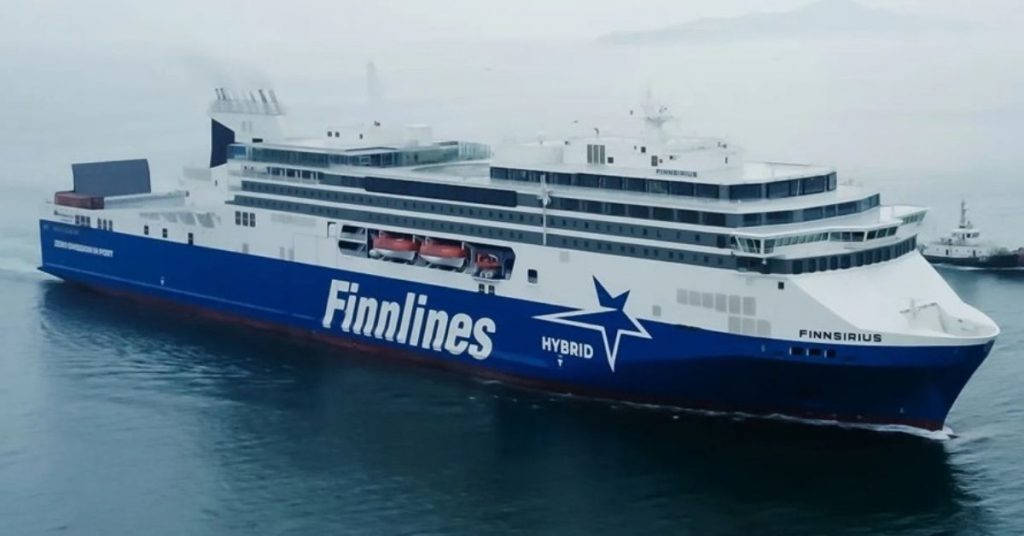Finnish shipping company Finnlines has introduced a new sustainable shipping initiative, Green Lane, offering freight and passenger customers low-emission transport options powered by either electricity or renewable biofuels. The service officially launched on May 22, 2025.
The initiative aims to support customers in meeting tightening environmental regulations and decarbonisation goals. Two options for new low emission shipments: fully electric shipping on specific routes and biofuel-powered transportation across multiple short-sea lanes in the Baltic region.
Electric-Powered Shipments Debut on Naantali–Kapellskär Route
The fully electric shipping service will operate on the Naantali–Kapellskär route, served by the hybrid vessels Finnsirius and Finncanopus. These ships utilize 5 MWh battery systems, charged using onshore electricity, enabling fossil-free sea travel for selected freight units. According to Finnlines, despite increased cargo capacity, the route has seen a 22% reduction in carbon emissions per nautical mile.
Biofuel Option Offers 90% Emission Reduction
A second Green Lane option allows customers to opt for biofuels derived from renewable sources. These will be available on key routes including Naantali–Kapellskär, Malmö–Travemünde, Malmö–Świnoujście, and Hanko–Gdynia. Biofuels can reduce greenhouse gas emissions by up to 90% compared to conventional fuels. On the Hanko–Gdynia route, for example, using biofuels could cut emissions by 700 kg of CO₂ per trailer.
Green Lane Extended to Passenger Services
Passengers will also be able to select the Green Lane option on routes such as Helsinki–Travemünde and Naantali–Långnäs–Kapellskär. When selected, Finnlines will substitute fossil fuel consumption with renewable alternatives equivalent to the traveler’s emissions share.
Fleet Expansion with Methanol Vessels
To further strengthen its green offering, Finnlines has announced the addition of three methanol-powered ro-pax vessels, set to enter service between Helsinki and Travemünde by 2028–2029. This investment is part of a broader EUR 2 billion fleet renewal strategy aimed at improving energy efficiency and reducing carbon intensity.
“We want to provide our customers with practical, low-emission solutions. The response has been very positive, and we anticipate growing demand for sustainable maritime transport,” said Finnlines President and CEO Thomas Doepel.
Tags: Biofuels, Electric Ships, Maritime Decarbonisation, Methanol, sustainable Shipping



Recent Posts
IMI Greater Noida Signs MoU with IME (I) to Launch A New Student Chapter
GCMD Completes World’s First Pilot Demonstrating Full Carbon Value Chain from Ship-Captured CO2 in China
NH3 Clean Energy Raises $710,000 to Advance WAH2 Clean Ammonia Project
Coventry University Collaborates with Indian Institutions to Advance Hydrogen Fuel Cell Education
Magenta Mobility partners with MOVER to power sustainable last-mile deliveries across India
Union Home Minister Amit Shah Visits Greenzo Energy’s Green Hydrogen Facility in Sanand
Godrej Enterprises Group (GEG) powers India’s smart, sustainable logistics future
Delhi Expands Electric Bus Fleet with Launch of 100 New DEVi Buses to Boost Green Mobility